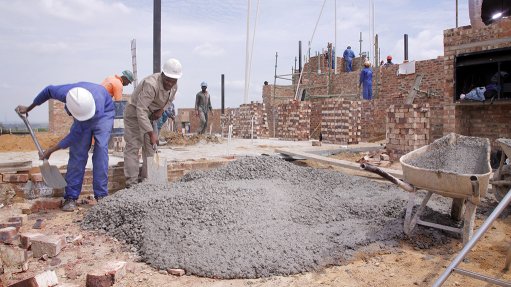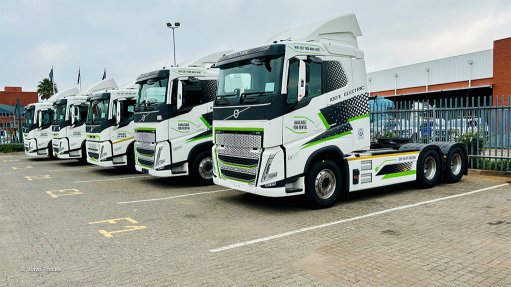UK funds study into space-based solar power
The British government has commissioned a study into the engineering and economic practicality of space-based solar power (SBSP) systems. More specifically, the study – the value of which has not been released – has been jointly commissioned by the UK Space Agency and the Department for Business, Energy and Industrial Strategy. The study will be led by the Frazer-Nash Consultancy, supported by the global quantitative analysis and forecasting company Oxford Economics.
SBSP would involve satellites with giant solar arrays collecting solar energy, converting it into high-frequency radio waves and then transmitting those to Earth, to receivers connected with electricity grids, thereby providing power on Earth. The idea is quite literally science fiction, having been proposed by renowned American science fiction author Isaac Asimov in his 1941 short story Reason.
“Solar space stations may sound like science fiction, but they could be a game-changing new source of energy for the UK and the rest of the world,” highlighted UK Science Minister (equivalent to Deputy Minister in South Africa) Amanda Solloway. “This pioneering government-backed study will help shine a light on the possibilities for a [SBSP] system which, if successful, could play an important role in reducing our emissions and meeting the UK’s ambitious climate change targets.”
China, India, Japan and South Korea are also all interested in the potential of SBSP, while the US has a tiny test satellite in orbit, testing one of the likely technology architectures for such a system. This American-pizza-box-size spacecraft was launched in May.
“The sun never sets in space, so a space solar power system could supply renewable energy to anywhere on the planet, day or night, rain or shine,” pointed out UK Space Agency CE Dr Graham Turnock. “It is an idea that has existed for decades, but has always felt decades away.”
“Using the power of the sun, [SBSP] is a low-carbon, renewable technology that could potentially offer us a resilient, safe and sustainable energy source, and could make a substantial contribution to delivering on the UK’s commitment to Net Zero [carbon emissions] by 2050,” highlighted Frazer-Nash space business manager Martin Soltau. “We’ll be considering the engineering feasibility and economics of [SBSP], exploring whether it could deliver affordable energy to consumers and the engineering and technology that would be required to build it. There would be a number of issues to be overcome; for example, assembling the massive satellites in orbit hasn’t been done before at this scale.”
Hitherto, the mass of the required satellites and the cost of launching them rendered SBSP totally unaffordable. But the development of lightweight solar panels has reduced the mass needed for such satellites, and private-sector space companies have, in recent years, dramatically driven down space launch costs. Further, there have been advances in wireless power transmission technology. Together, these developments make SBSP potentially feasible.
Frazer-Nash will set up a panel of experts in SBSP, space and energy, drawn from various organisations, including industry. The current three leading SBSP concepts will be studied – these are China’s MR-SPS (Multi-Rotary Solar Power satellite), America’s SPS Alpha (Solar Power Satellite Alpha) and the UK’s own CASSIOPeiA (Constant Aperture, Solid-State, Integrated, Orbital Phased Array). This study will be supported by US expert John Mankins, who invented the SPS Alpha concept, and British expert Ian Cash, who invented the CASSIOPeiA concept.
“The study will provide an independent assessment as to whether it is feasible, from an engineering perspective, to develop SBSP to an operational capability by 2050 – including considering through-life costs and comparing SBSP alongside other forms of renewable energy, to see how it would contribute as part of a future mix of clean energy technologies,” observed Soltau. “SBSP has the potential to contribute substantially to UK energy generation, and offers many benefits if it can be made practical and affordable.”
Comments
Announcements
What's On
Subscribe to improve your user experience...
Option 1 (equivalent of R125 a month):
Receive a weekly copy of Creamer Media's Engineering News & Mining Weekly magazine
(print copy for those in South Africa and e-magazine for those outside of South Africa)
Receive daily email newsletters
Access to full search results
Access archive of magazine back copies
Access to Projects in Progress
Access to ONE Research Report of your choice in PDF format
Option 2 (equivalent of R375 a month):
All benefits from Option 1
PLUS
Access to Creamer Media's Research Channel Africa for ALL Research Reports, in PDF format, on various industrial and mining sectors
including Electricity; Water; Energy Transition; Hydrogen; Roads, Rail and Ports; Coal; Gold; Platinum; Battery Metals; etc.
Already a subscriber?
Forgotten your password?
Receive weekly copy of Creamer Media's Engineering News & Mining Weekly magazine (print copy for those in South Africa and e-magazine for those outside of South Africa)
➕
Recieve daily email newsletters
➕
Access to full search results
➕
Access archive of magazine back copies
➕
Access to Projects in Progress
➕
Access to ONE Research Report of your choice in PDF format
RESEARCH CHANNEL AFRICA
R4500 (equivalent of R375 a month)
SUBSCRIBEAll benefits from Option 1
➕
Access to Creamer Media's Research Channel Africa for ALL Research Reports on various industrial and mining sectors, in PDF format, including on:
Electricity
➕
Water
➕
Energy Transition
➕
Hydrogen
➕
Roads, Rail and Ports
➕
Coal
➕
Gold
➕
Platinum
➕
Battery Metals
➕
etc.
Receive all benefits from Option 1 or Option 2 delivered to numerous people at your company
➕
Multiple User names and Passwords for simultaneous log-ins
➕
Intranet integration access to all in your organisation


















